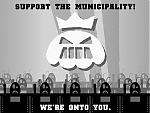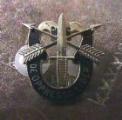Okay, I can grok that; and I agree.
Well, I stopped because I thought it might be sen as just too much of a philosophical highjacking of the thread! Since you ask, however, I would consider Origen to be a useless bureaucrat and Plotinus to be totally uninvolved; couldn't really talk about Porphry....
The more realistic reason why I brought up Augustine was that he was a) heavily involved in the development of Just war theory and b) the equation of regnum with the Will / "Mana" of God, basically setting the stage for the crowning of Charlemagne later on, and the development of the Divine Right of Kings vs. the ME concept of the God King.




 .)
.)






Bookmarks